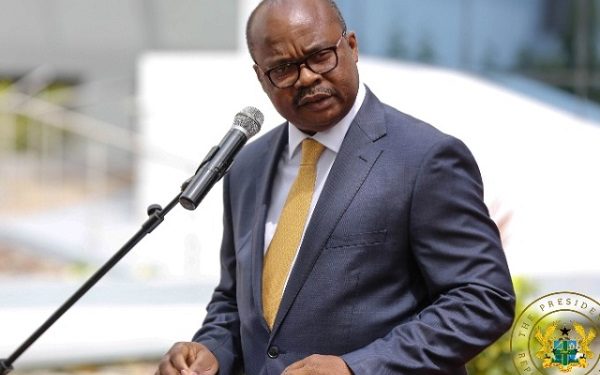The Governor of the Bank of Ghana (BoG), Dr Ernest Addison has praised the government’s efforts to address macroeconomic imbalances, describing them as “unprecedented”.
He highlighted the government’s strategic measures to tackle the economic challenges that have emerged in the wake of the COVID-19 pandemic and other global events.
Speaking during the Ministry of Finance and International Monetary Fund (IMF) Joint Press Briefing on Monday, July 1, Dr Addison pointed out that the government’s response to the macroeconomic imbalances has been robust and timely.
He emphasised that these efforts are crucial in maintaining economic stability and fostering growth.
He also noted that the government’s efforts have been instrumental in managing inflation and maintaining a stable currency, which are key indicators of a healthy economy.
Dr Addison further stated that the government’s commitment to fiscal discipline, coupled with its strategic investments in key sectors of the economy, has played a significant role in addressing these imbalances.
Addison expressed optimism about the future of the economy, stating that the government’s efforts to address macroeconomic imbalances have set a strong foundation for continued economic growth and development.
“The Ghanaian authorities have made unprecedented efforts to address macroeconomic imbalances. Today the macroeconomic outlook is dramatically improving and there are clear signs of economic stabilisation. Growth is on the upside; inflation has fallen significantly, fiscal policy is consolidating and foreign exchange reserve buildup has been robust.”
“First and foremost, on inflation, we saw the trajectory in 2023. With the inflation fall from 54% at the end of 2022 to 23% at the end of 2023. This was achieved with very effective monetary policy operations which were very costly to the violent feed of the central bank but very necessary for the public good. The pace of disinflation however has not curbed it in the first four months of 2024 and has only begun to fall significantly at the end of May.”
“We expect this to continue through the end of the year under the tight monitoring and fiscal policies, stable exchange rates and the expectation of improved food supply during the harvest season. The key determining factor will be the behaviour of the exchange rate.
“The improving economic fundamentals, the strong accumulation of foreign exchange in reserves under the gold for oil reserves programme and the agreement with the OCC and bondholders on debt restructuring should all in concept provide the basis for stability in the exchange rate going forward,” he stated.
Source: citinewsroom.com
